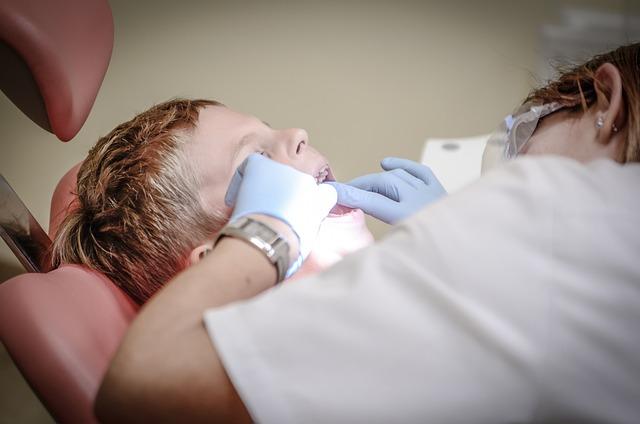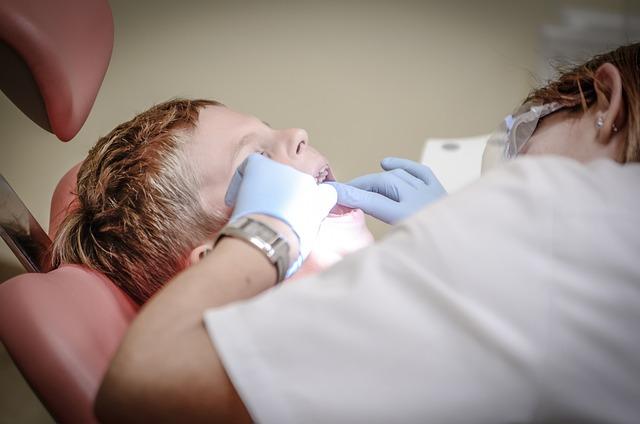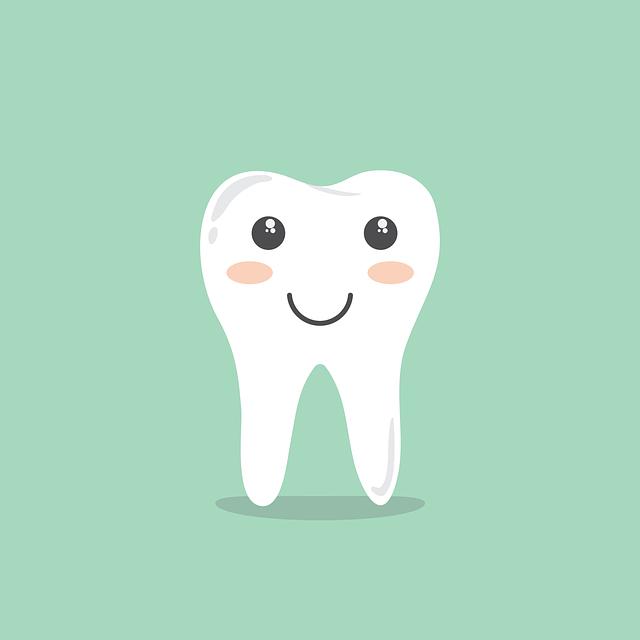Does Brushing with Salt Whiten Teeth? Dental Professionals Share Secrets
Have you ever wondered if there’s a natural, inexpensive way to achieve a dazzling, white smile? Look no further than your kitchen pantry. Many people believe that brushing with salt can magically transform their teeth, leaving them bright and radiant. But does this home remedy actually work? We’ve consulted dental professionals to uncover the truth behind this age-old practice. In this article, we’ll delve into the scientific facts and dispel any myths surrounding the effects of salt on teeth. Get ready to learn the secrets straight from the experts and discover whether brushing with salt can truly lead to a sparkling smile.
1. Debunking the Myth: Does Brushing with Salt Really Whiten Teeth? Dental Professionals Weigh In
There is a common belief that brushing your teeth with salt can help whiten them, but is there any truth to this claim? We reached out to dental professionals to get their expert opinion on the matter.
Dentists unanimously agree that brushing with salt does not have any proven whitening effect on teeth. In fact, it can actually be harmful to your oral health. Salt is abrasive in nature and can wear down the enamel, the protective layer of your teeth. This can lead to increased tooth sensitivity and make them more prone to staining in the long run.
Instead of relying on salt, dental professionals recommend using whitening toothpaste that is specifically formulated to remove stains and brighten your smile. These toothpastes contain gentle abrasives and bleaching agents that can effectively remove surface stains without causing damage to your teeth. Additionally, maintaining a good oral hygiene routine, including regular brushing and flossing, along with professional dental cleanings, can go a long way in keeping your teeth naturally white and healthy.
- Brushing with salt does not whiten teeth
- Salt is abrasive and can damage tooth enamel
- Whitening toothpaste is a safer and more effective option
- Maintaining good oral hygiene is key to keeping teeth white
Next time you come across the myth of using salt for teeth whitening, remember the expert advice of dental professionals and opt for proven methods to achieve a brighter smile.
2. The Science Behind Salt and Teeth Whitening: Separating Fact from Fiction
When it comes to teeth whitening, there are countless myths and misconceptions out there. One popular belief is that salt can be used as a natural teeth whitener. However, it’s important to separate fact from fiction when it comes to the science behind salt and teeth whitening.
First and foremost, salt does have some abrasive properties, which can help remove surface stains from teeth. However, it’s important to note that salt alone is not enough to achieve significant teeth whitening results. It can only provide a minimal effect on the color of your teeth.
Additionally, using salt as a teeth whitener may have some drawbacks. Salt is known to be abrasive, which means that excessive use or vigorous brushing with salt can potentially damage the enamel of your teeth. Therefore, it’s crucial to use salt in moderation and consult with your dentist before incorporating it into your oral hygiene routine.
In conclusion, while salt may have some mild teeth whitening properties, it is not a miracle solution for achieving a brighter smile. It’s best to rely on proven whitening methods, such as professional dental treatments or at-home whitening kits recommended by your dentist, to achieve noticeable and safe teeth whitening results.
3. Expert Insights: Dental Professionals Reveal the Truth about Salt’s Whitening Properties
When it comes to teeth whitening, many people have turned to salt as a natural remedy. But what do dental professionals have to say about this popular belief? We spoke to experts in the field to uncover the truth about salt’s whitening properties.
1. Salt as an abrasive: Dental professionals agree that salt can act as a mild abrasive when used in toothpaste or mixed with other ingredients. It can help remove surface stains and plaque, giving the appearance of whiter teeth. However, it is important to note that salt alone is not a miracle whitening agent. It should be used in moderation and as part of a comprehensive oral hygiene routine.
2. Salt’s antibacterial properties: Salt has been recognized for its antibacterial properties for centuries. Some dental professionals believe that saltwater rinses can help prevent gum diseases and maintain good oral health. While it may not directly whiten teeth, a healthy mouth can contribute to a brighter smile.
3. Potential risks: It is crucial to remember that excessive use of salt or rigorous scrubbing can damage tooth enamel. Dental professionals advise against using salt as the sole whitening method and recommend consulting with a dentist for professional advice. Additionally, individuals with sensitive teeth or gums should exercise caution when using salt-based remedies.
Overall, while salt may have some benefits in terms of oral health and superficial stain removal, it is not a substitute for professional teeth whitening treatments. Dental professionals emphasize the importance of maintaining regular dental hygiene practices and visiting a dentist for personalized advice on achieving a whiter smile.
4. Understanding the Effects of Salt on Tooth Enamel: What You Need to Know
When it comes to our oral health, understanding the effects of salt on tooth enamel is crucial. Here’s what you need to know:
Salt can contribute to tooth enamel erosion: Excessive consumption of salt can lead to enamel erosion, which is the protective outer layer of our teeth. The high levels of sodium in salt can weaken the enamel over time, making our teeth more vulnerable to decay and sensitivity.
Saliva plays a vital role: Our saliva helps neutralize and wash away harmful acids in our mouth, including those caused by salt. However, continuous exposure to high salt concentrations can hamper saliva’s protective abilities, further increasing the risk of enamel erosion.
Prevention is key: While salt is an essential part of our diet, moderation is crucial to maintain a healthy balance. Be mindful of your salt intake and try to incorporate more enamel-strengthening foods and drinks, such as dairy products and fluoridated water. Regular brushing, flossing, and dental check-ups are also essential to keep your enamel strong and protect your overall oral health.
5. Pros and Cons: Is Brushing with Salt a Safe and Effective Teeth Whitening Method?
Brushing with salt is a popular DIY teeth whitening method that has both pros and cons. Before incorporating this technique into your oral care routine, it is important to consider the following:
- Pros:
- Cost-effective: Using salt as a teeth whitening agent is an affordable alternative to commercial whitening products.
- Natural solution: Salt is a natural substance that does not contain harsh chemicals found in some whitening products, making it a more gentle option for those with sensitive teeth.
- Removes stains: The abrasive properties of salt can help remove surface stains on teeth, resulting in a brighter smile.
- Cons:
- Abrasive nature: While salt can effectively remove stains, it can also erode enamel if used excessively or with excessive force. It is crucial to use salt sparingly and with gentle brushing motions.
- Not a long-lasting solution: While salt can temporarily whiten teeth, the effects may not be as long-lasting as professional whitening treatments.
- Potential gum irritation: Brushing with salt may cause gum irritation or discomfort for some individuals. If you experience any negative reactions, it is best to discontinue its use and consult with a dentist.
Considering these pros and cons, it is advisable to consult with a dental professional before incorporating salt brushing into your oral care routine. They can provide personalized advice based on your dental health and recommend the most suitable teeth whitening methods for you.
6. Exploring Alternative Teeth Whitening Options: Why Salt may not be Your Best Bet
When it comes to teeth whitening, many people look for alternative options that are affordable and easily accessible. One such option that has gained popularity is salt. While salt may have some benefits for oral health, it may not be the best bet for achieving a brighter smile. Here’s why:
1. Abrasive nature: Salt is a natural abrasive and can help remove some surface stains on teeth. However, excessive use or scrubbing too hard can cause enamel erosion and damage. It’s important to remember that enamel doesn’t grow back, so it’s best to avoid using salt as a whitening agent.
2. Limited effectiveness: While salt may remove surface stains, it is not effective in removing deeper stains or discoloration caused by factors such as aging, smoking, or certain medications. Professional teeth whitening treatments or over-the-counter whitening products containing hydrogen peroxide are more likely to provide noticeable results.
3. Potential for gum irritation: Salt can be harsh on delicate gum tissues, especially if used in high concentrations or for extended periods. This can lead to gum irritation, sensitivity, or even gum disease. It’s always advisable to consult with a dentist before trying any alternative teeth whitening method.
In conclusion, while salt may have some minor benefits for oral health, it is not the best choice for achieving a whiter smile. It’s recommended to explore other teeth whitening options that are safe and proven effective. Consulting with a dental professional can help determine the most suitable treatment for your specific needs.
7. The Role of Salt in Oral Health: How it Impacts Teeth Whitening and More
Salt plays a significant role in maintaining oral health and can have an impact on teeth whitening and more. Here’s what you need to know:
1. The abrasive properties of salt: Salt acts as a natural abrasive, helping to remove plaque and stains from the teeth. When used in conjunction with toothpaste, salt can enhance the cleaning process and contribute to a brighter smile.
2. The antibacterial properties of salt: Salt has antibacterial properties, which can help combat harmful bacteria in the mouth. This can be particularly beneficial for preventing gum disease and reducing bad breath.
3. Saltwater rinses for oral health: Saltwater rinses are a popular home remedy for various oral health issues. Rinsing with a saltwater solution can help soothe gum inflammation, promote healing after oral surgeries, and provide temporary relief for toothaches.
4. Potential risks of excessive salt use: While salt can be beneficial in moderation, excessive consumption can have negative consequences. It’s important to maintain a balanced diet and limit salt intake to avoid potential health issues such as high blood pressure or kidney problems.
In conclusion, salt can play a valuable role in maintaining oral health. Its abrasive and antibacterial properties contribute to teeth whitening and overall cleanliness. However, it’s crucial to use salt in moderation and seek professional advice for any specific oral health concerns.
8. Unveiling the Secrets: Dental Professionals Share their Recommendations for Whitening Teeth Safely
Dental professionals have extensive knowledge when it comes to safely whitening teeth. Here are some of their tried and tested recommendations:
1. Consultation with a Dentist: Before beginning any whitening treatment, it is crucial to schedule a consultation with a dentist. They can assess the overall oral health and determine if teeth whitening is appropriate for you.
2. Professional Teeth Whitening: Dental professionals highly recommend opting for professional teeth whitening procedures. These treatments are performed under the supervision of experts, ensuring safety and efficacy. Professional whitening treatments such as in-office bleaching or custom-made whitening trays provide optimal results.
3. Avoid DIY Remedies: While there are numerous DIY whitening remedies available, dental professionals advise against using them. These remedies often lack scientific evidence and can potentially damage the enamel or irritate the gums. It is always best to rely on professional-grade products recommended by dentists.
4. Follow Instructions: If you opt for at-home whitening kits recommended by dental professionals, it is essential to strictly follow the instructions provided. Overuse or misuse of whitening products can lead to tooth sensitivity or gum irritation. Adhering to the recommended application duration and frequency is crucial for safe and effective results.
5. Maintain Good Oral Hygiene: Dental professionals emphasize the importance of maintaining good oral hygiene while whitening teeth. Regular brushing, flossing, and using an antibacterial mouthwash help remove surface stains and prevent tooth decay. It is also crucial to avoid staining substances like coffee, tea, or tobacco during the whitening process.
9. Myth or Miracle? Examining the Benefits and Limitations of Salt in Teeth Whitening
When it comes to teeth whitening, there is a lot of information out there about the benefits of salt. Some claim that salt can work miracles, while others dismiss it as a mere myth. Let’s take a closer look at the potential benefits and limitations of using salt for teeth whitening.
Benefits of Salt in Teeth Whitening:
- Salt is a natural abrasive that can help remove surface stains from teeth.
- It has antimicrobial properties that can help kill bacteria in the mouth, promoting oral health.
- Salt may help to reduce inflammation and soothe gum irritation.
Limitations of Salt in Teeth Whitening:
- Salt alone is not a substitute for professional teeth whitening treatments.
- While salt can remove surface stains, it may not be effective against deeper, more stubborn stains.
- Excessive use of salt can damage tooth enamel and lead to sensitivity.
It’s important to note that the use of salt for teeth whitening should be approached with caution. While it may provide some benefits, it is not a miracle solution. Consulting with a dental professional is always recommended to determine the best teeth whitening options for individual needs.
10. The Bottom Line: What You Should Know Before Using Salt for Teeth Whitening
Salt is a commonly used household item that some people claim can be effective for teeth whitening. However, before you reach for that salt shaker, there are a few important things you should know.
1. **Abrasive nature:** Salt has abrasive properties, which means that using it to scrub your teeth can potentially damage the enamel over time. This can lead to tooth sensitivity and other dental problems. It’s important to be cautious and gentle when using salt for teeth whitening, if you choose to do so.
2. **Limited evidence:** While some individuals have reported positive results with salt for teeth whitening, there is limited scientific evidence to support these claims. It’s always a good idea to consult with your dentist before trying any DIY teeth whitening methods, including salt.
3. **Safer alternatives:** There are several safer and more effective alternatives to salt for teeth whitening. Professional whitening treatments provided by dentists, over-the-counter whitening products approved by dental associations, and natural remedies like baking soda are known to be more reliable and less harmful to your teeth.
Remember, maintaining good oral hygiene practices such as regular brushing, flossing, and professional cleanings are key to keeping your teeth healthy and bright.
Frequently Asked Questions
Q: Does brushing with salt really whiten teeth?
A: Dental professionals share their secrets.
Q: Is it true that using salt can help whiten teeth?
A: Yes, it’s a widely known practice in dental care.
Q: How does brushing with salt actually work?
A: Salt acts as a natural abrasive that helps remove surface stains from teeth.
Q: Can salt replace toothpaste for teeth whitening?
A: While salt can be used as an adjunct to regular toothpaste, it is not a substitute.
Q: Are there any risks or side effects associated with brushing with salt?
A: When used in moderation, brushing with salt is generally safe. However, excessive use may damage tooth enamel.
Q: How often should one brush with salt to see results?
A: It is recommended to brush with salt no more than once or twice a week for best results.
Q: Can anyone brush their teeth with salt, or are there specific considerations?
A: Individuals with sensitive teeth or gum diseases should consult their dentist before incorporating salt into their oral care routine.
Q: Are there any other natural remedies that can help whiten teeth?
A: Yes, ingredients like baking soda, hydrogen peroxide, and activated charcoal are also known for their teeth whitening properties.
Q: What are the advantages of using natural remedies for teeth whitening?
A: Natural remedies are often cost-effective, easily accessible, and can provide satisfactory results for mild tooth discoloration.
Q: Should individuals still visit their dentist for professional teeth whitening despite using natural remedies?
A: Yes, professional teeth whitening treatments performed by dental professionals are still the most effective and long-lasting solutions for significant discoloration.
Q: Are there any other dental care tips to maintain white teeth?
A: Practicing good oral hygiene, avoiding foods and drinks that stain teeth, and regular dental check-ups can help maintain a bright smile.
Closing Remarks
In conclusion, the question of whether brushing with salt whitens teeth has been a topic of interest among many individuals seeking a natural teeth-whitening remedy. However, dental professionals assert that while salt may have some abrasive properties, it alone cannot provide significant teeth whitening effects.
Key Takeaways:
1. Salt has been considered as a potential teeth-whitening remedy due to its abrasive nature.
2. Dental professionals emphasize that salt alone is not sufficient to achieve noticeable teeth whitening results.
3. A comprehensive oral hygiene routine, including regular brushing, flossing, and professional dental cleanings, is crucial for maintaining oral health and promoting teeth whitening.
4. Consultation with a dental professional is recommended before trying any alternative teeth-whitening methods to ensure safety and effectiveness.
5. Professional teeth-whitening treatments, such as those offered by dentists, can provide more reliable and long-lasting results compared to natural remedies.
Remember, maintaining good oral hygiene practices and seeking professional advice are essential for achieving a brighter, healthier smile.




